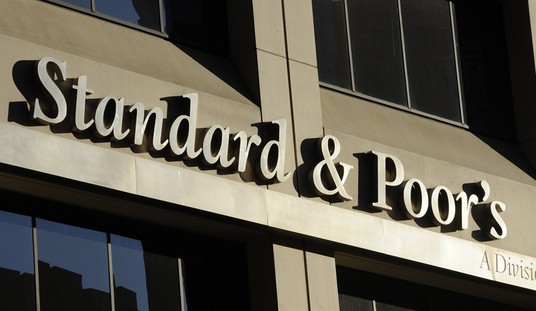Remember when Trump was destroying US relations with Europe?
Yeah, I don’t remember it that way either. Europeans grumbled about Trump a lot, but while they disliked Trump the man they weren’t particularly bothered by his policies. There was lots of bitching about what he might do, not so much about what he actually did.
Biden? Not so much. They seem more comfortable with Biden the man, but Biden’s policies have been a consistent thorn in their side. The Afghan withdrawal was an embarrassment for NATO, and was not supported by European governments.
Now Europeans are getting increasingly angry with the United States.
Nine months after invading Ukraine, Vladimir Putin is beginning to fracture the West.
European officials are furious with the US administration, accusing Americans of making a fortune from the war while EU countries suffer. https://t.co/4eeoQmp3xz
— POLITICOEurope (@POLITICOEurope) November 25, 2022
Europe is waking up to the fact that US-led policies on Ukraine are destroying the EU economy, and threatens the deindustrialization of the continent. As you may recall, Germany took enormous heat over its reluctance to sanction Russian energy imports, suffering accusations of being Putin puppets. The country got on board with the US policies to appease its neighbors.
Now that winter is upon us, Europeans realize that not only are energy prices spiking for consumers–already a huge burden to bear that could result in people literally freezing to death in their own homes–but the energy shortages stemming from the Ukraine war policies could decimate the European industrial economy.
Understandably this irritates EU countries.
Europe is especially angry at Biden’s signature policy “achievement,” the Inflation Reduction Act. Among its many provisions are policies and expenditures that directly target European industrial products in a manner that no Trump policies matched. In general Trump’s policies were about leveling the playing field; Biden’s are intended to put a thumb on the scale in a way that severely harms European industry.
In response The EU is actually threatening a trade war. Trade wars are always bad, and far worse during economic downturns. A looming trade war is particularly scary.
Europeans see the IRA as piling injury on top of injury–the US has imposed policies that raise energy costs through the roof, and now on top of that has implemented policies that favor US over European manufacturers. They see this as a one-two punch delivered at their economy, and don’t blame Putin.
They blame Biden. In their view Biden is now a bigger threat to their economy than Putin.
The anger over these policies is not going to go away and unlikely to calm down. Europe, unlike the US last winter, actually is facing a winter of darkness, death, and economic hardship.
Top European officials are furious with Joe Biden’s administration and now accuse the Americans of making a fortune from the war, while EU countries suffer.
“The fact is, if you look at it soberly, the country that is most profiting from this war is the U.S. because they are selling more gas and at higher prices, and because they are selling more weapons,” one senior official told POLITICO.
The explosive comments — backed in public and private by officials, diplomats and ministers elsewhere — follow mounting anger in Europe over American subsidies that threaten to wreck European industry. The Kremlin is likely to welcome the poisoning of the atmosphere among Western allies.
“We are really at a historic juncture,” the senior EU official said, arguing that the double hit of trade disruption from U.S. subsidies and high energy prices risks turning public opinion against both the war effort and the transatlantic alliance. “America needs to realize that public opinion is shifting in many EU countries.”
Another top official, the EU’s chief diplomat Josep Borrell, called on Washington to respond to European concerns. “Americans — our friends — take decisions which have an economic impact on us,” he said in an interview with POLITICO.
Americans are understandably angry at the “open wallet” policy of the Biden Administration in Ukraine, and are paying at both the pump and cash registers for Biden’s policies. But from the perspective of the Europeans–and they have a point here–Europeans are going to pay disproportionately for the effort. Their payments will not be in the direct subsidies flowing to Ukraine–their contributions are fairly modest compared to the US–but through vastly higher energy prices and potential energy shortages that make the US pain at the pump pale in comparison.
Germany faces industrial shutdowns that would cripple their economy, which relies heavily on industrial exports. In fact, some industrial facilities have already shut down and production moved offshore to places where energy is cheaper. Many of the most powerful economic sanctions on Russia imposes a similar, if not greater economic cost on Western Europe.
The biggest point of tension in recent weeks has been Biden’s green subsidies and taxes that Brussels says unfairly tilt trade away from the EU and threaten to destroy European industries. Despite formal objections from Europe, Washington has so far shown no sign of backing down.
At the same time, the disruption caused by Putin’s invasion of Ukraine is tipping European economies into recession, with inflation rocketing and a devastating squeeze on energy supplies threatening blackouts and rationing this winter.
Europeans are ticked that this is the result of their support of a policy that has largely been pushed by US leaders. It is the US most concerned with totally disarming Russia and want the war to go on until that point. Europeans are now at the point where they would much prefer a negotiated solution.
Here in the US the Left accuses everyone who supports negotiations as a Putin puppet. In Europe that is now seen as common sense.
As they attempt to reduce their reliance on Russian energy, EU countries are turning to gas from the U.S. instead — but the price Europeans pay is almost four times as high as the same fuel costs in America. Then there’s the likely surge in orders for American-made military kit as European armies run short after sending weapons to Ukraine.
It’s all got too much for top officials in Brussels and other EU capitals. French President Emmanuel Macron said high U.S. gas prices were not “friendly” and Germany’s economy minister has called on Washington to show more “solidarity” and help reduce energy costs.
Ministers and diplomats based elsewhere in the bloc voiced frustration at the way Biden’s government simply ignores the impact of its domestic economic policies on European allies.
When EU leaders tackled Biden over high U.S. gas prices at the G20 meeting in Bali last week, the American president simply seemed unaware of the issue, according to the senior official quoted above. Other EU officials and diplomats agreed that American ignorance about the consequences for Europe was a major problem.
“The Europeans are discernibly frustrated about the lack of prior information and consultation,” said David Kleimann of the Bruegel think tank.
It is hardly shocking or even unfair that gas imported from the United States to Europe is vastly more expensive than gas moved by pipeline in the US. It’s called economics, and ultimately a result of terrible energy policies of Europeans that goes back years. Energy policies that Trump, by the way, warned Europe about and was literally laughed at for pointing out. How times have changed.
However, as a political reality the disproportionate costs are a huge problem for US/European relations. While US consumers are hit by higher costs, Europeans are faced with going without altogether due to extremely high costs. High costs that Europeans see as imposed by US policies.
Biden, you will recall, is a foreign policy “expert.”
Europe was far better off under Trump–and would have been better off yet if they had followed his strategy to rearm before Europe fell into the inevitable war and pursue rational energy policies. Nobody in Europe would admit this, but it is obviously so.
The growing dispute over Biden’s Inflation Reduction Act (IRA) — a huge tax, climate and health care package — has put fears over a transatlantic trade war high on the political agenda again. EU trade ministers are due to discuss their response on Friday as officials in Brussels draw up plans for an emergency war chest of subsidies to save European industries from collapse.
“The Inflation Reduction Act is very worrying,” said Dutch Trade Minister Liesje Schreinemacher. “The potential impact on the European economy is very big.”
“The U.S. is following a domestic agenda, which is regrettably protectionist and discriminates against U.S. allies,” said Tonino Picula, the European Parliament’s lead person on the transatlantic relationship.
It’s easy to predict a fracture in relations between the US and Europe, but our fates are so intertwined that it is premature to do so. For decades the US has tried to “pivot” to Asia as our foreign policy focus, as it is the economic center of gravity in the world. Yet Europe remains at the center of our policy concerns mostly due to historical ties. Yet Europeans are openly questioning our ties, and even comparing US policies to China’s industrial policies.
Despite the energy disagreements, it wasn’t until Washington announced a $369 billion industrial subsidy scheme to support green industries under the Inflation Reduction Act that Brussels went into full-blown panic mode.
“The Inflation Reduction Act has changed everything,” one EU diplomat said. “Is Washington still our ally or not?”
…
An official from France’s foreign affairs ministry said the diagnosis is clear: These are “discriminatory subsidies that will distort competition.” French Economy Minister Bruno Le Maire this week even accused the U.S. of going down China’s path of economic isolationism, urging Brussels to replicate such an approach. “Europe must not be the last of the Mohicans,” he said.
It may be too early to blame Biden for a permanent split between the US and Europe, but it is impossible to ignore the fact that Biden’s policies have been far, far more destructive in US/European relations than Trump’s. Trump was culturally far less appealing to Europeans than Biden, but while his words hurt their feelings, his policies did not.
Biden’s policies, on the other hand, are leaving Europe in crisis.
Following Biden’s lead has been a disaster for Europeans, and they know it. They are angry enough to say it, which in diplomatic terms tells you a lot.
Imagine the conversations behind closed doors. Are European leaders whispering to each other that perhaps Trump wasn’t so bad after all?








Join the conversation as a VIP Member